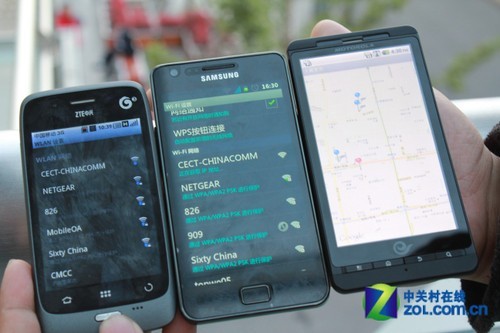Officials say Beijing's free Wi-Fi will be safe
 0 Comment(s)
0 Comment(s) Print
Print E-mail
China Daily, October 31, 2011
E-mail
China Daily, October 31, 2011
The capital's free Wi-Fi service, to be launched in a number of areas, is safe, officials said, amid fears that personal information and privacy may be compromised.
 |
|
Officials say Beijing's free Wi-Fi will be safe |
China Mobile, China Unicom and China Telecom subscribers will be able to enjoy, by the end of November, a 2Mbps public wideband service through the hotspot named "My Beijing" at Xidan, Wangfujing, the Olympic Center, three major train stations, Financial Street, Yansha and Zhongguancun. All Wi-Fi services will be free for three years under a pilot project.
However, to obtain the access password they need to enter cell phone numbers "for identity authentication" according to the Beijing Municipal Commission of Economy and Information Technology.
"I do not feel comfortable releasing my cell phone number," said Zhou Yan, an English teacher at the New Oriental School in Beijing. The reason for his uneasiness is that during a recent bank transaction, he released his phone number and he has been swamped by spam messages since.
"If I log on to the Wi-Fi and there happens to be a sales promotion, they might send the information to my cell phone since they know my number and position," Zhou said.
Zhou is also worried that his number could be sold to marketing companies that might later send him spam.
"They might know what I'm interested in and what I might purchase according to what I have viewed online. I have to trade my privacy for free services."
Zhou said he understood there might be tighter supervision since the service was led by the government, rather than simply by businessmen.
An employee at the Beijing branch of the China Mobile Communications Corp, surnamed Yang, said the requirement of submitting a phone number to log on will help trace those whose online activity might endanger social security.
However, in response to public doubts, Zhang Shimin, a senior official of the commission, said free Wi-Fi is to enhance social wellbeing and entering a number is simply "identity authentication".
As part of the wireless local area networks (WLAN) construction project, which has a coverage target of more than 60 percent over the next five years in the capital, the municipal government will build a total of 90,000 WLAN access points, covering most of the downtown areas and high-tech parks by the end of this year, according to the commission.
There will eventually be 480,000 WLAN access points in the capital covering more than 6,000 hotspots, the largest in terms of numbers in the country, according to Zhang.
"The service is to enable more people to enjoy the convenience," Zhang said.
As to whether the service will remain free after an initial pilot project of three years, the commission did not give a clear-cut answer.
However, some citizens think that the pilot project is to lure customers in and get them used to the service.
"They provide you with a three-year free service and you get hooked," Robin Tsukada, a Japanese student at Tsinghua University, said.
"After you have been used to the convenience of surfing the Internet, you will be willing to pay for the service."
There was no official word on whether the service would be free in three years.
"We're not sure whether the service will still be free three years from now," said Liu Yan, spokesman for the Informatization Office at Xicheng district government. "But very likely the city will be running under different models, with Wi-Fi services paid by individuals, companies or government in the future."






Go to Forum >>0 Comment(s)